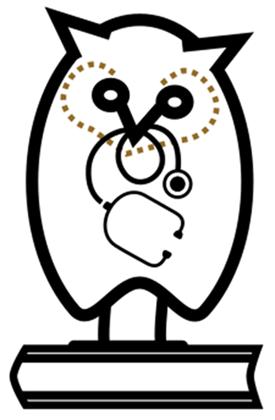It's a Wrap! Wikipedia + Libraries: Health and Medical Information Course
 When Finger Lakes Library System librarian, Jenny Shonk, recently faced a personal health issue, she found herself turning to the convenience of Wikipedia for research. Shonk, who is the continuing education and outreach public librarian in Ithaca, New York, is not alone. Searching for information on health or medical topics is the third most popular online activity, according to a 2013 report by Pew Research, and Wikipedia is the fifth most-accessed website in the United States.
When Finger Lakes Library System librarian, Jenny Shonk, recently faced a personal health issue, she found herself turning to the convenience of Wikipedia for research. Shonk, who is the continuing education and outreach public librarian in Ithaca, New York, is not alone. Searching for information on health or medical topics is the third most popular online activity, according to a 2013 report by Pew Research, and Wikipedia is the fifth most-accessed website in the United States.
As a librarian, Shonk sought to understand how and when to use Wikipedia in the library. Given both are open and easily accessible resources, libraries and Wikipedia are closely aligned in their missions to freely serve general information inquiries. However, librarians have had good reason to view the crowd-sourced encyclopedia with reservation. At any time, articles in the volunteer-run online encyclopedia may be in different states of development.
The popularity and complexity of Wikipedia, as well as the overlapping missions, led the National Network of Libraries of Medicine (NNLM) and WebJunction to design and host the free course, Wikipedia + Libraries: Health and Medical Information in October of 2019. The four-week online course was instructed by Wikipedian and communication scholar, Monika Sengul-Jones, and WebJunction’s Betha Gutsche, with Elizabeth Waltman from NNLM joining as a guest presenter.
Public library staff enrolled in the course to better serve patrons and to use Wikipedia more effectively in the library. The course trained U.S. public library staff on the inner workings of Wikipedia for health and medical information. One learner said they enrolled in the course because they “feel it would be irresponsible to not to learn about all of the tools our patrons might use to obtain health information.” With nearly 6 million articles, English Wikipedia has thousands of volunteer editors. The course materials dovetailed digital evaluation techniques with an insider’s perspective on the editorial process. Sengul-Jones guided participants to understand Wikipedia’s editorial process, style guide, assessment processes, and reliable sources guidelines for medical and health information. “I'm quite surprised at the level of rigorous editing and group effort involved in creating the most top-rated entries,” said Amy Hille, of East Adams Library District in Washington State. “Like Sergeant Joe Friday, Wikipedia demands ‘just the facts,’” noted Cedate Shultz, of La Vista Public Library.
As a part of the learning process, participants created Wikipedia accounts and contributed a citation to an underdeveloped article related to health and medicine. Waltman encouraged participants to make their contributions using authoritative references found with PubMed, MedlinePlus, and NIH online databases and websites.
When the course concluded, approximately thirty-three participants had contributed 25 citations to 22 articles. Some participants received “thanks” from other editors. A few saw their contributions were edited, or even reverted. The experience—including the reversions—gave them valuable insight into the culture of Wikipedia editing. “I have a new respect for the volunteers who dedicate their time and talent to improving Wikipedia and the community of active learners and teachers that they’ve created,” said Diane Moskal of Elkins Park Public Library in Pennsylvania.
Participants said that understanding how Wikipedia works has increased their confidence in knowing how and why to trust the online encyclopedia. “Because of this [course], I am now more willing to recommend Wikipedia as a reference and will use it myself more frequently,” said Megan Hopkins, Assistant Director of the Sullivan County Public Library System in northeast Tennessee.
For participants, the next steps include bringing Wikipedia skills back to their libraries. Participants reported planning to incorporate Wikipedia literacy skills in existing information literacy trainings with staff and patrons. Some are planning to develop new programs, including trainings, workshops, and editing events. Searching for health information can be overwhelming and deeply personal, as Shonk discovered when she faced her own health issue. In reflecting on her own journey, Shonk was impressed by what she can bring to her library and community. “I had no interest in medical resources until my recent health issues. It’s funny how our life experiences guide our interests and pursuits! I am thankful for this class and the knowledge that I have gained. I plan on taking the course materials to a broader audience. I am a librarian at a library system with 33 member libraries and I provide a majority of the training. I definitely want to make health information literacy for staff development a priority for my training next year.”
Look for this course to be offered in the future by the National Network of Libraries of Medicine, and see all their upcoming free learning opportunities on the Training Calendar.
Wikipedia + Libraries: Health and Medical Information was sponsored by the National Network of Libraries of Medicine and OCLC as a topic-specific adaptation of Wikipedia + Libraries: Better Together, an OCLC training program for public library staff, presented in fall 2017. The curriculum and materials from that training are available for public use and adaption under CC BY-SA 4.0.
Photo: Wikipedia Medical Library owl.svg, Wikimedia Commons, Attribution-Share Alike 4.0 International

